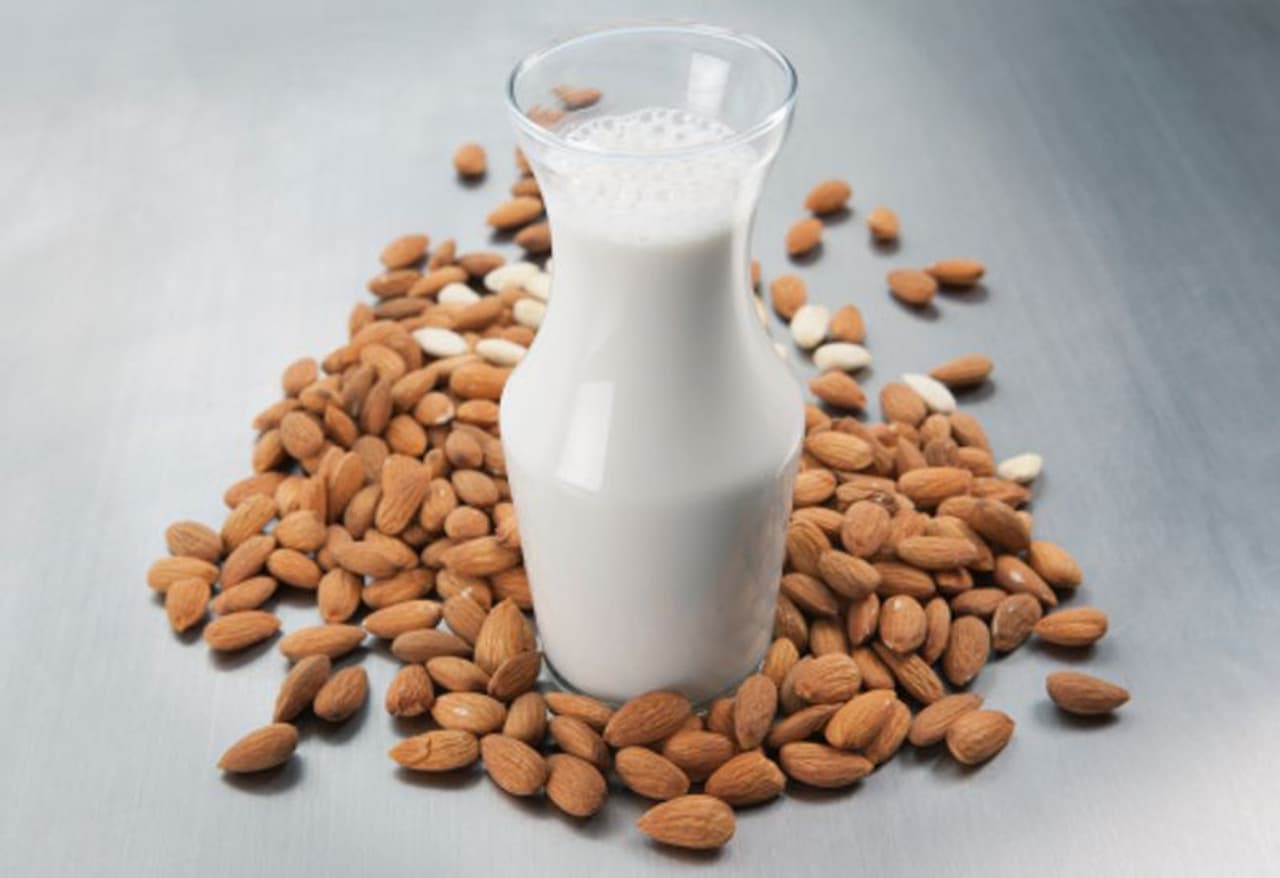Planning to switch from cow milk? Here’s why you should almond milk
If the entire gamut of dairy is being eliminated, then include more nuts and seeds and green vegetables in your diet to make sure you aren’t hurting your bone health.

<p>The choice to eliminate cow’s milk, from one’s diet, is a personal one – but finding an alternative can be a little tougher; so we’ve put down some of the benefits of almond milk, to make that choice a little easier.</p>
The choice to eliminate cow’s milk, from one’s diet, is a personal one – but finding an alternative can be a little tougher; so we’ve put down some of the benefits of almond milk, to make that choice a little easier.

<p>Milk allergies, or lactose intolerance is not an uncommon problem – complaints cover digestive issues (bloating, gas, even diarrhea) to skin concerns. Some people react to the enzymes or hormones in cow’s milk. Others react to milk that contains too many added ‘nutrients’ or, has been adulterated by ingredients that perhaps should not be entering the human body. Whatever the reason for giving up cow’s milk, one should be sure to maintain other sources of calcium in one’s diet.</p>
Milk allergies, or lactose intolerance is not an uncommon problem – complaints cover digestive issues (bloating, gas, even diarrhea) to skin concerns. Some people react to the enzymes or hormones in cow’s milk. Others react to milk that contains too many added ‘nutrients’ or, has been adulterated by ingredients that perhaps should not be entering the human body. Whatever the reason for giving up cow’s milk, one should be sure to maintain other sources of calcium in one’s diet.
<p>If the entire gamut of dairy is being eliminated, then include more nuts and seeds and green vegetables in your diet to make sure you aren’t hurting your bone health.</p>
If the entire gamut of dairy is being eliminated, then include more nuts and seeds and green vegetables in your diet to make sure you aren’t hurting your bone health.
<p>Since getting into the nitty gritty of all the pros and cons of every type of milk in the market might take a while, we’re going to get into the details of almond milk – considered one of the better options for vegans.</p>
Since getting into the nitty gritty of all the pros and cons of every type of milk in the market might take a while, we’re going to get into the details of almond milk – considered one of the better options for vegans.
<p><strong>Fewer Calories:</strong> If you’re not buying the pre-packaged brands off the shelf, which have been fortified by additional ingredients, then fresh almond milk is one of the best milks in terms of keeping the caloric content at a low.<br /> </p>
Fewer Calories: If you’re not buying the pre-packaged brands off the shelf, which have been fortified by additional ingredients, then fresh almond milk is one of the best milks in terms of keeping the caloric content at a low.
<p><strong>Calcium and Vitamin D:</strong> Although not as much as in dairy milk, almond milk is still a decent source of calcium, and works together with Vitamin D to make sure you’re getting the best benefits for your bones.</p>
Calcium and Vitamin D: Although not as much as in dairy milk, almond milk is still a decent source of calcium, and works together with Vitamin D to make sure you’re getting the best benefits for your bones.
<p><strong>Vitamin E: </strong>Want younger looking skin? Who doesn’t? Almond milk is a fantastic source of vitamin E, which contributes to better skin elasticity as well as protects the skin from the harmful elements of sun exposure.</p>
Vitamin E: Want younger looking skin? Who doesn’t? Almond milk is a fantastic source of vitamin E, which contributes to better skin elasticity as well as protects the skin from the harmful elements of sun exposure.
<p><strong>Low Carbohydrates:</strong> those with blood sugar concerns don’t have to be too worried with good quality almond milk (make sure it does not contain added white sugars), as the carb content is just enough for the body to convert it into the good kind of sugars that we all require for energy.<br /> </p>
Low Carbohydrates: those with blood sugar concerns don’t have to be too worried with good quality almond milk (make sure it does not contain added white sugars), as the carb content is just enough for the body to convert it into the good kind of sugars that we all require for energy.
<p><strong>Fiber: </strong>almonds are a source of fiber, so it helps keep the digestive system happy and healthy.</p>
Fiber: almonds are a source of fiber, so it helps keep the digestive system happy and healthy.
<p><strong>Protein: </strong>although not as high in the protein stakes as cow’s milk, almond milk still has enough of a kick to make sure the body gets some traces of protein – but be sure to supplement this with other sources of clean dietary protein such as beans and lentils, and if a meat-eater, lean chicken breasts.</p>
Protein: although not as high in the protein stakes as cow’s milk, almond milk still has enough of a kick to make sure the body gets some traces of protein – but be sure to supplement this with other sources of clean dietary protein such as beans and lentils, and if a meat-eater, lean chicken breasts.